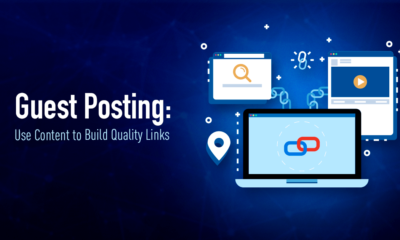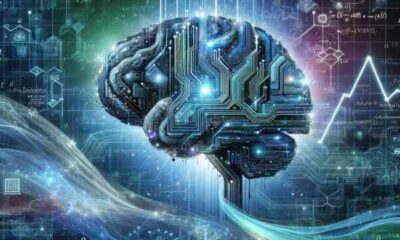News
Microsoft’s Orca 2: Revolutionizing AI with Compact Language Models
Microsoft’s Orca 2 is a groundbreaking AI language model that has made significant strides in efficiency and performance. The models, with 7 billion and 13 billion parameters, have matched or surpassed the capabilities of larger models, like Meta’s Llama-2 Chat-70B, in complex reasoning tasks and zero-shot scenarios. This achievement underscores Microsoft’s effectiveness in AI research and development.
Orca 2’s ability to outperform larger models is attributed to innovative training methods and improved signals. The models have been trained on a tailored synthetic dataset and can choose different solution strategies for different tasks. Despite its breakthroughs, Orca 2 inherits certain limitations from its base models, such as potential data biases and lack of contextual understanding.
Microsoft’s decision to open-source Orca 2 models demonstrates its commitment to fostering collaboration and further research in AI. This move is expected to accelerate progress in developing and evaluating smaller language models. Orca 2’s release also democratizes AI accessibility, providing organizations of all sizes with a more accessible alternative to state-of-the-art natural language processing without the need for significant computational investments.
The introduction of Orca 2 serves as a reminder of the limitless potential of innovation in the AI landscape. Microsoft’s commitment to pushing the boundaries of AI research is poised to reshape how businesses approach natural language processing and reasoning tasks. With the integration of OpenAI talent and strategic vision, Microsoft is set to further bolster the capabilities and development of language models like Orca 2, potentially reshaping the landscape of AI technology and its applications.

In a groundbreaking move, Microsoft, under Satya Nadella’s leadership, introduced Orca 2. Amidst the dynamic shifts within the AI research community, including significant events at OpenAI, Microsoft has remained steadfast in its AI endeavors. Orca 2, comprising models with 7 billion and 13 billion parameters, has made a splash by either matching or surpassing the capabilities of larger models, like Meta’s Llama-2 Chat-70B, particularly in complex reasoning tasks and zero-shot scenarios.
The Emergence and Impact of Orca 2
Orca 2 is an incremental update and represents a substantial leap forward in AI language modeling. Building on the original 13-billion-parameter Orca model, Orca 2 has demonstrated remarkable reasoning abilities, imitating the step-by-step processes of larger models. This has been achieved through innovative training methods and improved signals, enabling these smaller models to achieve reasoning capabilities typically reserved for their larger counterparts.
Orca 2’s ability to outperform much larger models in specific tasks is a testament to Microsoft’s efficiency in research and development within AI. The models have been put through rigorous testing on diverse benchmarks covering language understanding, common-sense reasoning, multi-step reasoning, math problem-solving, and reading comprehension. The results show that Orca 2 models significantly surpass those of a similar size and attain performance levels comparable to or better than models ten times larger.
A New Paradigm in AI Research
Microsoft’s decision to open-source both Orca 2 models underscores its commitment to fostering collaboration and further research in AI. This move is expected to accelerate progress in developing and evaluating smaller language models. Orca 2’s release is a boon for enterprises, especially those with limited resources, offering a more accessible alternative to state-of-the-art natural language processing without the need for significant computational investments.
Training Methodologies and Challenges
Orca 2 has been fine-tuned on a highly tailored synthetic dataset derived from the Llama 2 base models. The training data was designed to teach Orca 2 various reasoning techniques, such as step-by-step processing, recall then generate, and direct answer methods. This approach has enabled Orca 2 to choose different solution strategies for other tasks, flexibility not often found in larger models.
Despite its breakthroughs, Orca 2 inherits certain limitations from its base LLaMA 2 model and other large language models. These include potential data biases, lack of contextual understanding, transparency issues, and risks of content harm. Microsoft has recognized these challenges and recommends leveraging content moderation services to mitigate them.
Democratizing AI Accessibility
Microsoft’s release of Orca 2 marks a significant milestone in the democratization of AI, challenging the notion that bigger models are always superior. This development opens up opportunities for organizations of all sizes to harness the power of AI without massive computational resources.
The Future of AI with Orca 2
The AI landscape is continuously evolving, and the introduction of Orca 2 serves as a reminder of the limitless potential of innovation. Microsoft’s commitment to pushing the boundaries of AI research is poised to reshape how businesses approach natural language processing and reasoning tasks. With the integration of OpenAI talent and strategic vision, Microsoft is set to further bolster the capabilities and development of language models like Orca 2, potentially reshaping the landscape of AI technology and its applications.
In conclusion, Orca 2 emerges as a beacon of progress and inclusivity in the AI world. Its potential to empower smaller models to rival their larger counterparts promises a revolution in the AI landscape, offering new possibilities for AI-driven endeavors across various sectors.
News
cforms II now GPL compliant
Well, it was a long run, ok, only 24 hours when Mr. Seidel’s announced that he would pull the plug on further updates to the cforms plugin.
But after consideration and many emails, he has released a update to a GPL compliant version of his plugin: 10.2.
News
Goodbye to cforms II
If you are using the cforms II, you may want to head over to Mr. Seidel’s site for more info on the matter.
News
Revolution Two: Agent Theme
Benefits include the Agent theme, unlimited theme support answered by our experts, customization techniques with our detailed theme tutorials and professional design services available by our list of recommended designers.

Price:
Single License: $59.95 Buy Now!
Pro Plus All-Theme Package: $199.95 Buy Now!
-
Tips & Tricks4 months ago
WordPress Security Hacks
-

 Pages7 months ago
Pages7 months agoWrite For Us – Guest Post
-
Showcase2 months ago
StylizedWeb.com
-
News6 months ago
How to: Show/Hide any div box with jQuery in WordPress
-

 Plugins3 months ago
Plugins3 months agoTop Membership plugins
-
Tips & Tricks6 months ago
Remove the title attribute using jQuery
-
Guest Post3 months ago
The Top 10 Best Free Android Retro Games of all time
-
Tips & Tricks3 months ago
How to: show/hide a widget in WordPress with jQuery













